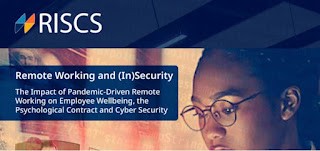I really couldn’t imagine doing my PhD anywhere else - Dr Joanne Woodage
Looking back at my time in the CDT, I really couldn’t imagine doing my PhD anywhere else and I feel very grateful for the many opportunities it has presented to me.
Not least that I was accepted me as a student in the first
place! When I graduated from the University of Manchester with a Mathematics
degree in 2013, I had no idea what I wanted to do. Having spent much of the
next year failing to ‘find myself’ on a backpacking trip around Asia, I stumbled
across cryptography and wondered if this might be a way that I could use the
pure
mathematics I had enjoyed in my degree in an applied
context. I’d never done any formal work in cryptography and my computer science
skills didn’t extend far beyond a cursory grasp of Excel, so I feel very lucky
that the CDT was willing to take a chance on a student with a lot of enthusiasm
but very little concrete experience.
The CDT attracts students from a real mixture of backgrounds
and areas of expertise, and the diverse cohort this creates is one of the
group’s greatest strengths.
As a complete newcomer to cyber security, my first year in
the CDT was an onslaught of new concepts and three letter acronyms, and there
were definitely times when I wondered how I would ever understand anything
enough to produce a thesis. Our first year training was invaluable to get up to
speed on the wide range of topics that fall under the umbrella of cyber
security. We were also given the freedom to explore different areas before settling
on a research topic, which allowed me to completely change direction away from
the mathematical cryptography that I’d assumed I’d work on to provable
security, an area of cryptography which draws on techniques from theoretical
computer science to construct rigorous and formal proofs that cryptographic
schemes achieve certain security properties.
My PhD work focused on the application of provable security
to ‘real world’ cryptographic problems, and included analysing (and finding
flaws in) standardised and widely deployed pseudorandom number generators, and
developing cryptographic solutions to facilitate verifiable abuse reporting in
encrypted messaging applications.
On top of the opportunity to work in a world-class research
environment in the Information Security Group at Royal Holloway, the CDT was
brilliant for facilitating opportunities to engage with the wider research
community, in particular with industry. In our first year we had regular visits
to or from companies with links to the department, which undoubtedly helped
steer my research away from pure theory towards real-world problems, and the
travel support we were given allowed me to present my work at conferences
around the world. I was very lucky to undertake two excellent internships, spending
four and a half months at Cornell Tech in New York City, and three months at
Microsoft Research in Redmond. The Microsoft internship, taken to fulfil the
CDT’s expectation of an industry placement, was pivotal to my decision to move
into industry after my PhD. I’m so glad that the CDT forced me to step outside
the university environment that I’d become comfortable in and see the
opportunities beyond.
Following my time in the CDT, I spent a brilliant year
working at Crypto Quantique, a London-based start-up developing end-to-end
security solutions for the Internet of Things. While it was nerve-wracking
leaving the academic ivory tower for my first ‘proper’ job, I found myself
pleasantly surprised by how well-prepared I was thanks to the CDT. The broad cyber
security training in the first year has proven a solid foundation upon which to
build deeper knowledge, and the strong engagement with industry meant that this
new environment wasn’t entirely unfamiliar. Most importantly, the CDT shifted
my mind-set to find the things I don’t know less daunting and more exciting,
and has taught me that you can pick up almost anything if you stick at it long
enough. In a couple of weeks, I will be joining Microsoft Research, Cambridge,
and am excited for all that lies ahead.
Writing this has made me think back to the very start of my PhD and how much things have changed. Concepts that seemed utterly impenetrable at the start of my CDT studies are now things I use every day at work, and the direction my career has taken is very different to what I expected when I started, and much the better for it. The CDT has opened doors that I never knew existed and – corny as it sounds – has really changed my life. I’m very thankful to have been given the opportunity to complete my PhD studies in such a unique and special place



Comments
Post a Comment